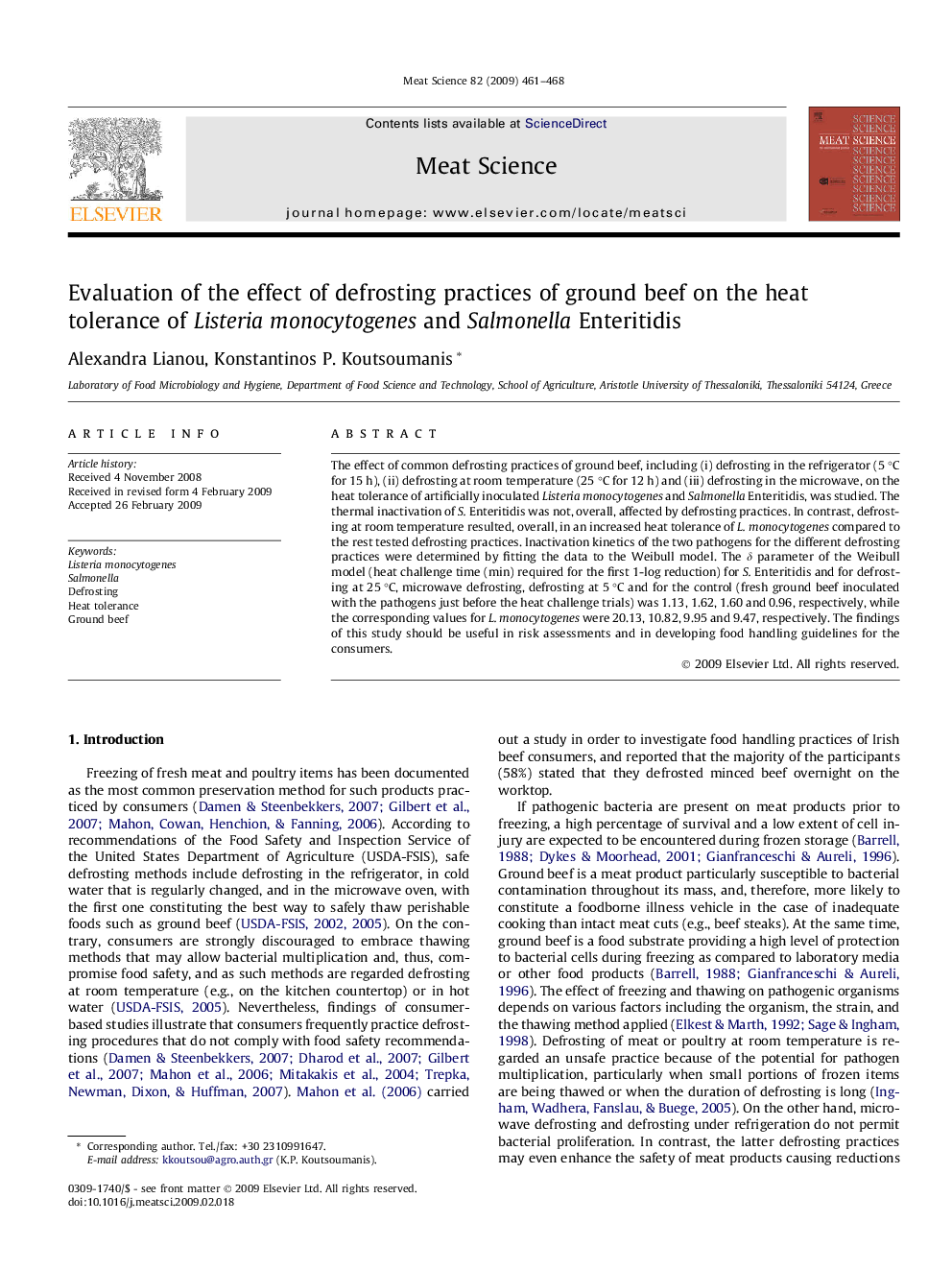| Article ID | Journal | Published Year | Pages | File Type |
|---|---|---|---|---|
| 2451160 | Meat Science | 2009 | 8 Pages |
The effect of common defrosting practices of ground beef, including (i) defrosting in the refrigerator (5 °C for 15 h), (ii) defrosting at room temperature (25 °C for 12 h) and (iii) defrosting in the microwave, on the heat tolerance of artificially inoculated Listeria monocytogenes and Salmonella Enteritidis, was studied. The thermal inactivation of S. Enteritidis was not, overall, affected by defrosting practices. In contrast, defrosting at room temperature resulted, overall, in an increased heat tolerance of L. monocytogenes compared to the rest tested defrosting practices. Inactivation kinetics of the two pathogens for the different defrosting practices were determined by fitting the data to the Weibull model. The δ parameter of the Weibull model (heat challenge time (min) required for the first 1-log reduction) for S. Enteritidis and for defrosting at 25 °C, microwave defrosting, defrosting at 5 °C and for the control (fresh ground beef inoculated with the pathogens just before the heat challenge trials) was 1.13, 1.62, 1.60 and 0.96, respectively, while the corresponding values for L. monocytogenes were 20.13, 10.82, 9.95 and 9.47, respectively. The findings of this study should be useful in risk assessments and in developing food handling guidelines for the consumers.
